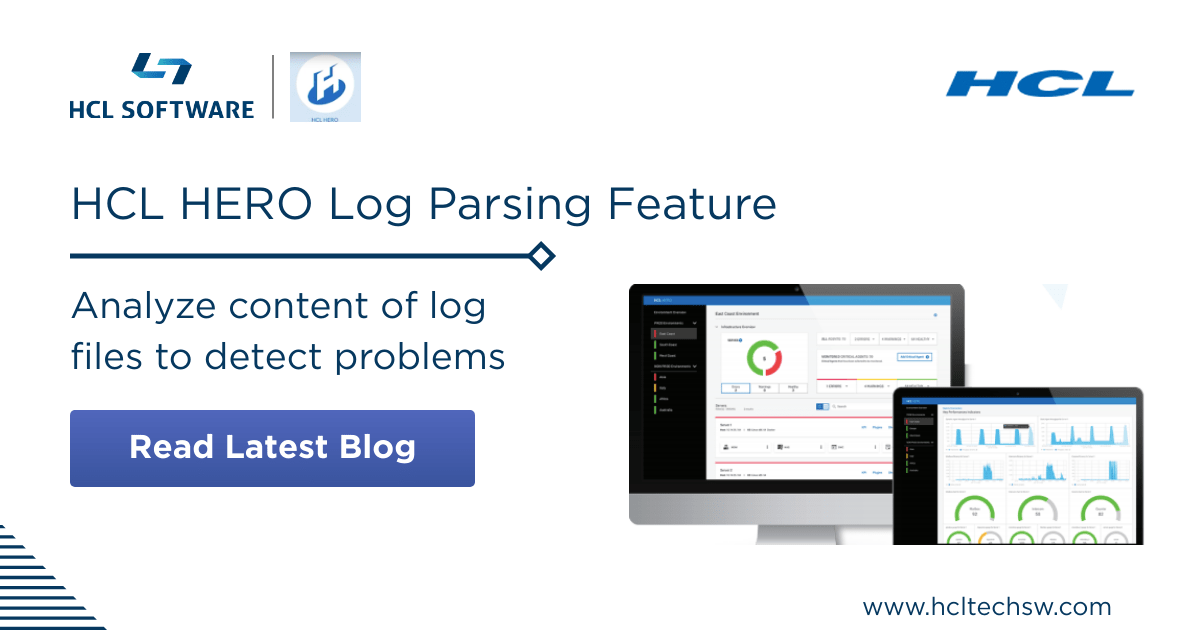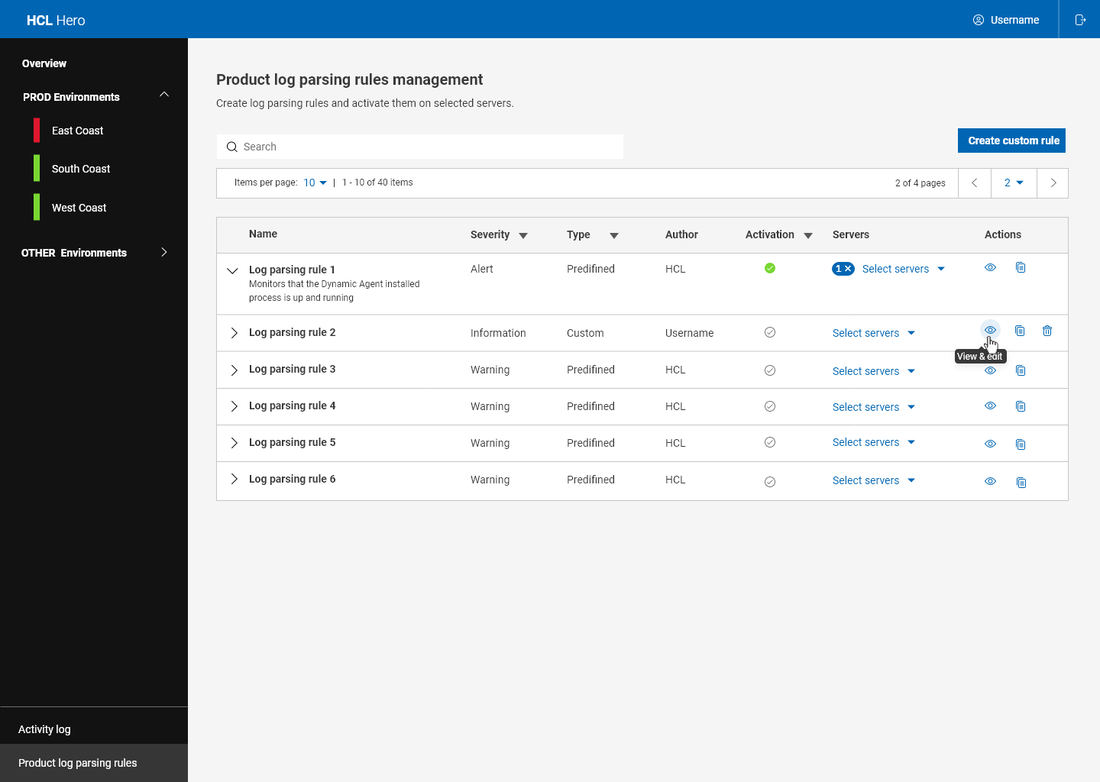|
The scariest thing for Workload Automation administrators is to see production environments not scheduling properly, causing disruption in business pipelines and monetary loss if the downtime last for a long period of time. That’s why we say that HCL HERO is the Administrator best friend, thanks to its monitoring capabilities powered by multiple monitors and a list of recovery actions that can be run with just a couple of clicks. With HERO the administrator can understand an issue, analyze the root cause and run a fix within few minutes, keeping the environment always up and running. Thanks to the external vigilance of HERO the Workload Automation environment and processes are always running save. But what can we do if we want to have a deeper look? HERO can monitor processes and statuses but even so, applications may not run properly, even if all the process are up. Here we introduce the HCL HERO Log Parsing, a new and powerful feature that enables HERO to analyze the content of log files to find problems and alert users about them. Log parsing is enabled with FileBeat, a small and efficient agent that reads log files and filter them based on specific rules. HERO can deploy and configure this agent without any configuration or knowledge required by the end user and provides an easy-to-use user interface where rules can be activated, created, edited, duplicated and even deleted. The Log parsing rule is a configuration needed by HERO to understand which files to check and what needs to be discovered in the log files. When user creates a rule, he can provide a list of files (or directories) to check, the matching criteria and the alert severity. Files and directories can be any log that can be read on the specified server, it is not limited only to Workload Automation files, users can choose anything to monitor, even ones produced by the system or other applications. The matching criteria is a list of Character or regular expressions that users want to find in the log files, in a single rule multiple expressions can be provided and users can even define that an alert must be triggered only if the expression is present multiple time in a specific timeframe. The alert severity is just how much that information is important for the user, it can be an informational alert, this will not trigger any real alert in the HERO dashboard or HERO emails, or it can be Warning or Error severity, those will trigger a HERO email and a change in the monitored environment status. All of this can be setup with a simple to use interface where users can find default rules created with the help of Workload Automation experts, they can be used as a full starting point on application-level monitoring and on learning how log parsing rules work. After all of this, if log parsing is no longer required on a Workload Automation server, HERO can uninstall the agent leaving no traces of it. Example of Log Parsing web interface With log parsing feature we are giving to HERO even more power, not only on monitoring a Workload Automation environment but even to understand if internal processes are running as expected, thanks to this deep analysis it will be easier than ever to discover issues and even troubleshooting them without having to read enormous amount of logs, furthermore, this feature gives to HERO the capability to go beyond Workload Automation processes to reach a full wide-system monitoring. My intention was not to give you an exhaustive list of all the features and capabilities of HERO; my hope is to entice you, pique your curiosity, and lure you into learning more about the HCL Automation Power Suite products by browsing through the following links: Automation Power Suite Workload Automation HCL Clara Automation Hub HCL Hero Learn more about HCL Workload Automation here or drop us a line at [email protected]? Author's Bio
0 Comments
Your comment will be posted after it is approved.
Leave a Reply. |
Archives
July 2024
Categories
All
|





 RSS Feed
RSS Feed